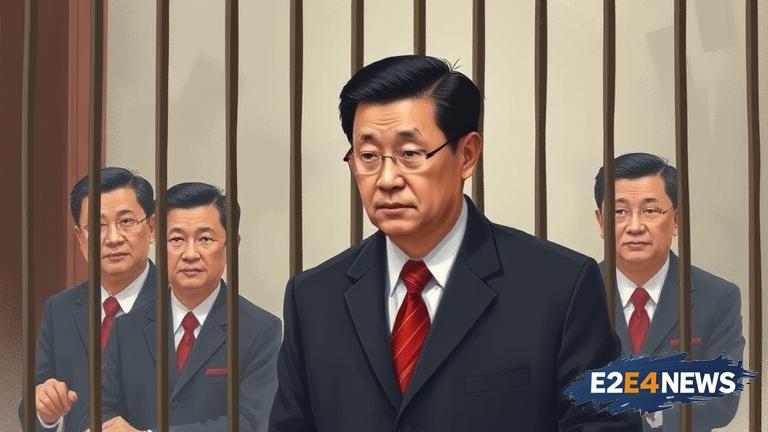A Chinese court has handed down a 14-year prison sentence to a former general manager of China National Offshore Oil Corporation (CNOOC) for accepting bribes. The executive, whose name has not been disclosed, was found guilty of taking advantage of his position to accept large sums of money from various companies. The bribes were allegedly used to secure contracts and favorable treatment for these companies. The case is a significant development in China’s ongoing anti-corruption campaign, which has targeted high-ranking officials and executives across various industries. The sentence is seen as a strong message from the Chinese government, emphasizing its commitment to rooting out corruption and ensuring accountability. The former general manager’s case is not an isolated incident, as several other high-profile executives and officials have been implicated in corruption scandals in recent years. CNOOC, one of China’s largest oil companies, has been at the center of several corruption investigations, highlighting the need for greater transparency and oversight in the industry. The company has taken steps to address these concerns, including implementing new compliance measures and strengthening its internal controls. Despite these efforts, the sentencing of the former general manager serves as a reminder that more needs to be done to prevent corruption and ensure that those responsible are held accountable. The Chinese government has introduced various measures to combat corruption, including stricter regulations and increased enforcement. These efforts have led to the conviction of numerous high-ranking officials and executives, demonstrating the government’s commitment to addressing the issue. The sentencing of the former CNOOC general manager is a significant milestone in this campaign, as it highlights the severity of the penalties for those found guilty of corruption. The case also underscores the importance of transparency and accountability in the oil and gas industry, where large sums of money and complex transactions can create an environment conducive to corruption. As China continues to play a major role in the global energy market, the need for robust anti-corruption measures becomes increasingly important. The country’s anti-corruption campaign has far-reaching implications, not only for its own economy but also for the global business community. Companies operating in China must be aware of the risks associated with corruption and take steps to ensure compliance with local laws and regulations. The sentencing of the former CNOOC general manager serves as a warning to companies and individuals that corruption will not be tolerated, and those found guilty will face severe penalties. In addition to the prison sentence, the former executive is likely to face significant financial penalties, including fines and confiscation of assets. The case is a reminder that corruption can have serious consequences, not only for individuals but also for companies and the broader economy. As China continues to evolve and grow, the need for a transparent and accountable business environment becomes increasingly important. The government’s anti-corruption campaign is a critical step towards achieving this goal, and the sentencing of the former CNOOC general manager is a significant development in this effort. The case highlights the importance of cooperation between government agencies, regulatory bodies, and companies to prevent corruption and ensure that those responsible are held accountable. The Chinese government’s commitment to combating corruption is a positive step towards creating a more transparent and accountable business environment, which is essential for attracting foreign investment and promoting economic growth. The sentencing of the former CNOOC general manager is a strong message that corruption will not be tolerated, and those found guilty will face severe penalties. The case serves as a reminder that companies and individuals must operate with integrity and transparency, and that corruption can have serious consequences. The Chinese government’s anti-corruption campaign is an ongoing effort, and the sentencing of the former CNOOC general manager is a significant milestone in this campaign.





